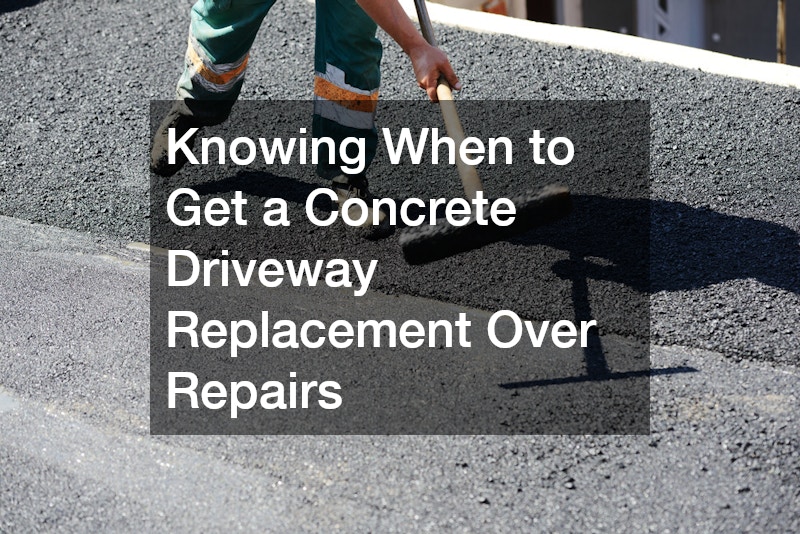Deciding whether to opt for a concrete driveway replacement or simply repair the existing surface can be challenging. While minor cracks and surface damage can often be fixed with patchwork or resurfacing, there are certain situations where a full replacement is the more practical and long-lasting solution.
One clear sign that it’s time for a driveway replacement is widespread cracking or sinking. If the foundation beneath the driveway has shifted or eroded, repairs will only be temporary.
In such cases, the entire driveway needs to be removed and replaced to ensure a stable, long-lasting surface that won’t experience future damage from the same underlying issues.
Another indicator is extensive surface deterioration, such as pitting, spalling, or crumbling concrete. When these issues affect large areas, repairs can become costly and may not restore the driveway’s appearance or durability. A concrete driveway replacement, on the other hand, offers a fresh, clean surface that enhances both the function and curb appeal of your property.
Finally, if your driveway is older, typically 20-30 years or more, it may be reaching the end of its lifespan. A concrete driveway replacement will provide a brand-new surface that can last for decades, saving you from constant repairs and upkeep. When faced with major damage or aging, replacing the driveway is often the best long-term solution.
.





